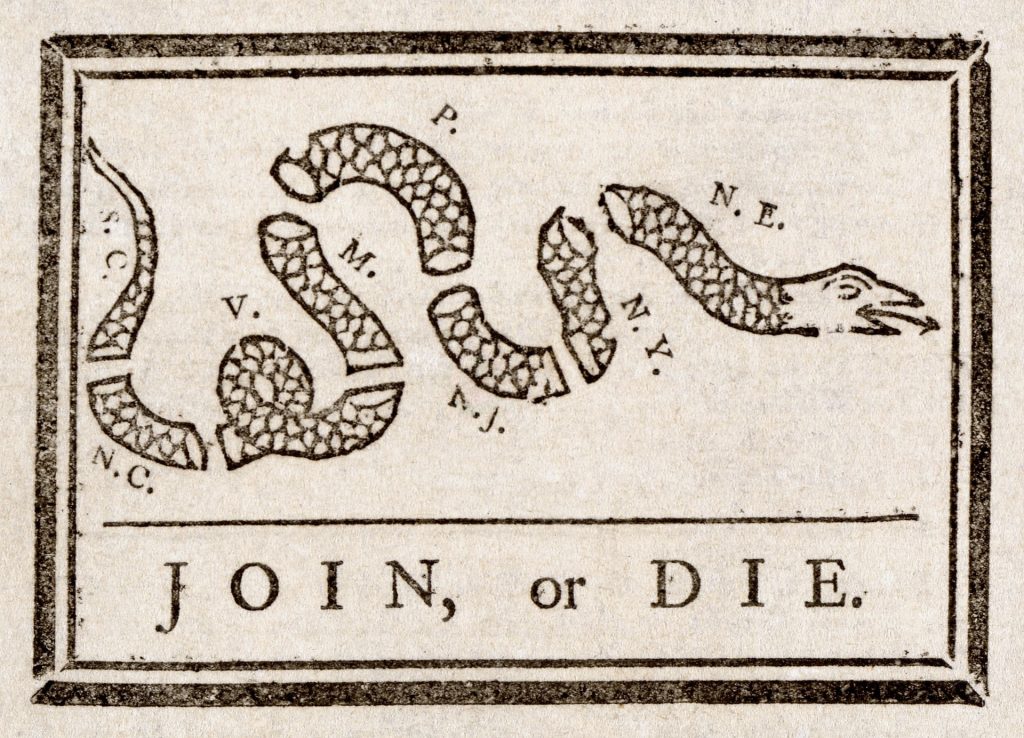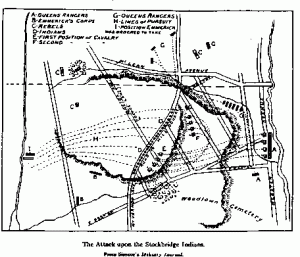Contents
Contents
The Revolutionary War gave rise to a number of important quotes, which are remembered today as milestones on the journey towards American independence.
Below, we’ve collated 10 of the most significant quotes from the American Revolution, and explained their historical context.
“Is life so dear, or peace so sweet, as to be purchased at the price of chains and slavery? Forbid it, Almighty God! I know not what course others may take; but as for me, give me liberty or give me death!” – Patrick Henry, 1775
Perhaps the most iconic quote of the American Revolution, Patrick Henry’s “give me liberty or give me death!” was a call to arms in light of British oppression in the American colonies. This quote quite possibly altered the course of American history.
This famous line is a part of a speech made by Henry at the Second Virginia Convention in 1775, in his capacity as a delegate from Hanover County.
The Second Continental Congress met on March 23 1775 to discuss the best course of action in response to British acts of oppression, such as the Intolerable Acts. Moderate delegates wanted to seek a peaceful resolution with the British, while other representatives, like Henry, argued that the colonies must take up arms to defend themselves.
Henry argued that war with the British was inevitable, and was necessary for the Americans to maintain their freedom. He wanted Virginia to organize the military forces necessary to defend the colony from the British.
His arguments convinced the delegates, who are said to have sat in complete silence for over a minute after his speech was concluded. As a result, the militia was mobilized, and Henry would lead the 1st Virginia Regiment into battle later that year. His famous quote was added to the Culpeper Flag, used by the Culpeper Minutemen until they were disbanded in 1776.
“I have not yet begun to fight!” – John Paul Jones, 1779
Captain John Paul Jones is considered one of the most skilful naval leaders of the American Revolution.
He is known for his heroics in taking the battle to the British, going as far as attacking their coastline, and inflicting defeats on the British Navy, despite often being outnumbered and outgunned.
On September 23 1779, Jones’ ship, the Bonhomme Richard, was engaged in a fierce battle with the British HMS Serapis off the coast of England.
Both ships were badly damaged, and when asked to surrender by the British Captain Richard Pearson, Jones responded “I have not yet begun to fight!”.
Eventually, Jones captured the Serapis, but his own ship sank soon after. Despite being heavily damaged, he was able to captain the Serapis, with several hundred British prisoners onboard, to the neutral Dutch port of Texel.
“Join, or Die” – Benjamin Franklin, 1754
In 1754, Benjamin Franklin published the first political cartoon in American history in the Pennsylvania Gazette.
It featured a rattlesnake cut into eight pieces, representing the most significant American colonies of the time, with the words “JOIN, or DIE” printed below.
Franklin was urging unity among the colonies during the French and Indian War (1754–1763). However, the quote became more common during the American Revolution, when it was used to encourage the Thirteen Colonies to unite against British oppression.
The rattlesnake imagery associated with this quote became a popular symbol of American resistance against the British, and it was featured on a number of important flags used by continental forces.
“I only regret that I have but one life to lose for my country.” – Nathan Hale, 1776
Nathan Hale was a captain of the Continental Army from Coventry, Connecticut.
In September 1776, at the request of George Washington, he volunteered to spy on the British in New York, going undercover as a Loyalist to gather information about troop movements. However, he was discovered, and sentenced to death.
Hale is renowned for his resolve in the days leading up to his execution. According to some accounts, his last words were “I only regret that I have but one life to lose for my country”.
After the war, Hale’s story became well-known, and he is considered a Patriot hero to this day.
“We hold these truths to be self-evident, that all men are created equal, that they are endowed by their Creator with certain unalienable Rights, that among these are Life, Liberty and the pursuit of Happiness.” – Declaration of Independence, 1776
This is the most iconic quote from the Declaration of Independence, published on July 4, 1776, during the American Revolution.
Two days prior, the Second Continental Congress voted to declare the creation of a new nation, the United States, independent of Great Britain. The Declaration of Independence expanded on the reasoning behind this decision, and described the ideals that the United States would stand for.
The creation of the Declaration of Independence was overseen by Benjamin Franklin, Thomas Jefferson, John Adams, Robert Livingston, and Roger Sherman. Jefferson wrote the document, and it is said that this particular quote was edited slightly by Franklin. It originally began with “We hold these truths to be sacred and undeniable…” rather than “We hold these truths to be self-evident”.
“These are the times that try men’s souls. The summer soldier and the sunshine patriot will, in this crisis, shrink from the service of their country; but he that stands by it now, deserves the love and thanks of man and woman.” – Thomas Paine, 1776
During the American Revolution, Thomas Paine, a writer and Patriot activist originally from England, published a series of pamphlets called The Crisis.
This quote is from the opening of the first edition of the works, published on December 23, 1776.
The Crisis was written at a time when Continental Army morale was at an all-time low. Paine was trying to encourage soldiers to continue fighting against the British, despite the low odds of success.
The reference to a “summer soldier and sunshine patriot” laments Continental Army soldiers who give up the cause during trying times, such as what the revolutionaries were experiencing in late 1776 and early 1777, after several heavy defeats and issues keeping units supplied.
Paine’s pamphlets are credited with swaying public opinion and inspiring the colonists to continue fighting at what was a very dark time for the rebels.
“Men, you are all marksmen – don’t one of you fire until you see the whites of their eyes. Then fire low!” – Israel Putnam, 1775
This quote is commonly attributed to Israel Putnam, a Continental General from Massachusetts, at the Battle of Bunker Hill on June 17, 1775. It is thought he was passing on an order from Col. William Prescott, commander of the American forces. However, some historians believe that it was just a legend, and was never actually said on the battlefield.
Putnam issued this command because the colonials were facing an ammunition shortage, and so they did not want to waste any musket balls by firing from distance, or potentially shooting over the heads of the approaching enemy.
Although the Americans lost the Battle of Bunker Hill, they put up a strong fight – a lot stronger than what the British were expecting. This quote has come to be associated with American determination and resistance in spite of low odds during the Revolutionary War.
“We must all hang together, or assuredly we shall all hang separately.”– Benjamin Franklin, 1776
When the Declaration of Independence was adopted on July 4 1776, under British law, the Founding Fathers were committing treason against the Crown. If they lost the war and were captured by the British, they faced the possibility of being executed.
This statement was supposedly made by Benjamin Franklin as the Declaration was signed on that famous day.
Franklin was urging the Continental Congress delegates to continue supporting independence in the face of the risks they all shared. Without their combined support, the move for independence would be much less likely to be successful.
“Don’t tread on me” – from the Gadsten Flag, 1775
The phrase “Don’t tread on me” was popularized by the Gadsten Flag, designed by Christopher Gadsten in 17775 for use in the Continental Navy.
The Gadsten Flag features a coiled-up rattlesnake, which became an American Revolutionary symbol after Benjamin Franklin first used it in 1754, showing its fangs and ready to strike. Rattlesnakes are only found in America, and only bite when cornered, or in self-defense, which is why they became such a popular revolutionary symbol.
Gadsten himself likely came up with this phrase as a statement to oppose British overreach in the colonies.
“Stand your ground; don’t fire unless fired upon, but if they mean to have a war, let it begin here.” – Captain John Parker, 1775
At the beginning of the conflict, many of the Patriot militiamen and their leaders still held respect for the British in some capacity, and did not necessarily want to go to war.
This quote is attributed to Captain John Parker, who commanded the Lexington militia at the Battle of Lexington and Concord on April 19, 1775 – the first engagements of the Revolutionary War.
Parker’s men were ordered to gather at Lexington Green, in preparation for incoming Regular Troops of the British Army. They were not yet in open conflict, so Parker ordered his men to withhold their fire when the British arrived.
According to Parker, the British arrived and killed eight of his men, although British accounts claim that the colonials fired the first shot. Later, the battle would escalate in the nearby town of Concord.




